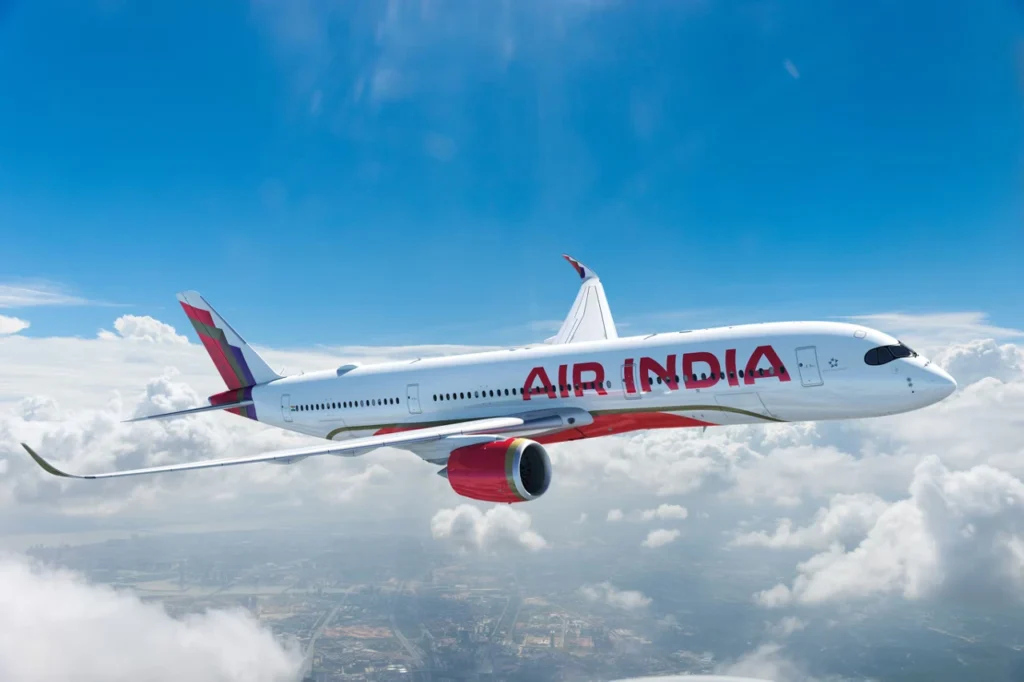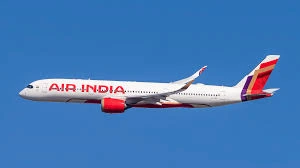Air India is capitalizing on the opportunities arising from the US-China tariffs war by moving to acquire rejected Boeing jets. This strategic decision helps the airline strengthen its fleet amid global market changes, positioning it for future growth.

According to sources cited by Bloomberg, Air India has taken the Boeing aircraft that Chinese airlines have rejected because of Donald Trump’s tariffs, in what appears to be a calculated move in the midst of the growing trade war between the US and China.
It further stated that the biggest airline in India, which is owned by the Tata Group, is now competing with other Asian airlines to capitalize on the deterioration of economic relations between the US and China.
Air India to buy Boing jets? What we know so far
The story claims that Air Indi will use Boeing to accept the rejected aircraft because it “urgently needs aircraft” for its rebirth strategy. According to the sources, Air India is also willing to accept any upcoming delivery slots that open up.
Significantly, benefited from the trade war with China that Donald Trump initiated in 2019 when he was in power; it took in about 47 Boeing aircraft (737 Max airplanes) that were initially intended for Chinese airlines.
Air India and Boeing did not respond to queries.
According to the article, which cited the local Bernama daily, Malaysia Aviation Group Bhd has reportedly made a bid to Boeing in addition to Air India.
Why is Air India in need of new planes?
According to the sources who spoke to Bloomberg, India wants to compete with IndiGo by acquiring more of the previously manufactured Max narrowbodies for its low-cost Air Express subsidiary.
According to a Bloomberg News story earlier this month, Air India was scheduled to receive roughly nine additional Boeing 737s through June, bringing the total number of aircraft to 50. Although it was anticipated that the pool would run out in a few months, Air India’s Boeing windfall might persist due to the US-China tariff conflict changing the picture.
In Bengaluru, the planes are usually repainted. According to the sources, supply chain problems have hindered Air Indi Express’s plans to switch from business class to economy on the flights it gets by April 2026.
The remaining 140 narrowbody deliveries from Air India’s 2023 order aren’t expected to start until after March 2026, putting the airline at risk of falling further behind IndiGo if it can’t secure any newly freed-up Boeing planes.
A refurbishment program that would temporarily remove some of Air India’s fleet and a plan to phase out other Airbus models are also expected to hinder the airline’s expansion. In an effort to compensate for outdated cabins and renovation delays, the firm is attempting to attract customers with lower tickets, according to CEO Campbell Wilson’s statement from last month.

China rejects Boeing planes: Background
After Beijing imposed retaliatory duties of up to 125% on US-made goods, Bloomberg News reported last week that the government had instructed Chinese airlines not to accept Boeing planes. Some 737 Max aircraft in China have subsequently been returned to the United States, and at the time, about ten aircraft were being prepared for delivery.
Potential buyers will have difficulties with any Boeing aircraft that are already constructed or under construction because the original customer will have already determined the cabin arrangements for many of them and made some payments. Boeing is not permitted to place any aircraft with new owners that are still bound by Chinese airline contracts.
Should the tariff war continue, the short-term impact to Boeing, one of the most well-known US exporters, is probably going to be lessened by the demand from non-Chinese airlines. However, efforts to shut down a 737 storage facility this summer may be hampered by the trade dispute. With its quarterly results this week, the US manufacturer is anticipated to give an update on the state of affairs.
Over the past few years, Europe’s Airbus SE has outperformed Boeing in China because to tensions between Washington and Beijing. Longer term, geopolitics could prevent Boeing from participating in one of the largest aircraft markets globally.
Beginning with its grounding, which was prompted by two fatal accidents, and lasting throughout the pandemic, Boeing accumulated an inventory of hundreds of 737 Max aircraft that had not yet been delivered. The US aircraft manufacturer eventually began remarketing the aircraft after Beijing regulators were among the slowest to clear the aircraft and other problems delayed deliveries. Concerns over lithium batteries in cockpit voice recorders caused Chinese officials to halt 737 deliveries for two months last year.
















